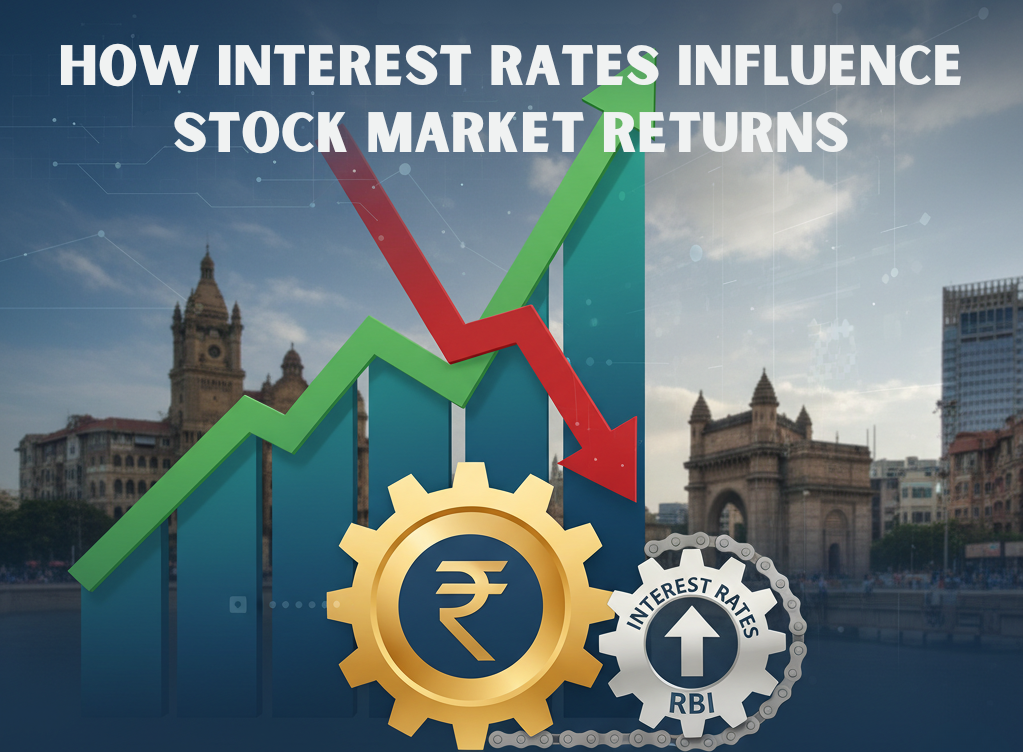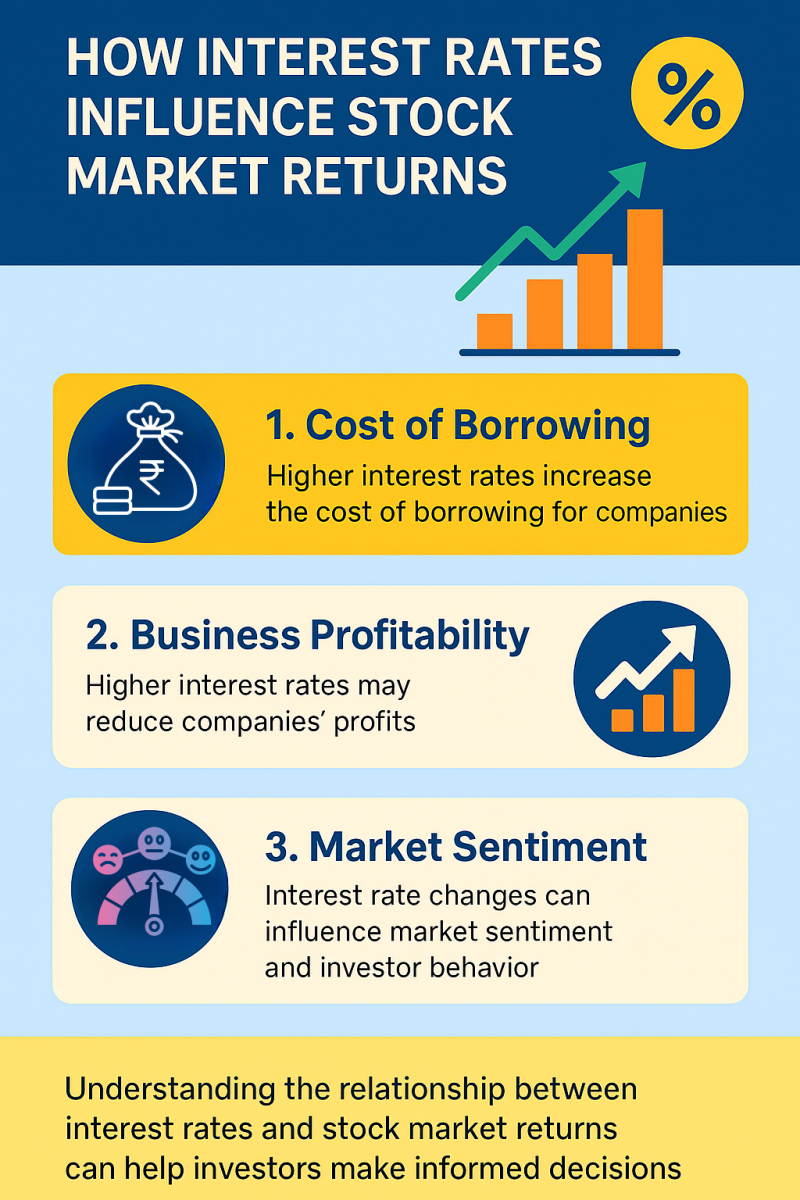
How Interest Rates Influence Stock Market Returns
How Interest Rates Influence Stock Market Returns
Interest rates play a powerful role in shaping the direction of the stock market. Whether announced by the Reserve Bank of India (RBI), the U.S. Federal Reserve, or other central banks, changes in interest rates can influence everything from corporate profits to investor sentiment. For anyone investing in the stock market, understanding how interest rates work — and why they matter — is essential.
Thank you for reading this post, don't forget to subscribe!What Are Interest Rates?
Interest rates represent the cost of money. When banks lend money, they charge interest; when they take deposits, they pay interest. The central bank (in India, the RBI) sets a benchmark rate known as the repo rate, which determines the cost at which commercial banks can borrow.
When the repo rate changes, borrowing and spending across the economy are affected, influencing inflation, growth, and ultimately, stock market performance.
How Changes in Interest Rates Impact the Stock Market
1. Higher Interest Rates Can Cool the Stock Market
When the RBI raises interest rates:
-
Loans (home, auto, business) become costlier.
-
Companies may delay expansion and investments.
-
Consumers may cut down spending.
-
Corporate profits may shrink.
This leads to more cautious investor behavior, resulting in lower stock prices, especially in:
-
Real Estate
-
Banking
-
Capital-intensive sectors like Infra & Manufacturing
In short:
Higher interest rates = Slower economic growth = Potential stock market decline
2. Lower Interest Rates Can Boost the Market
When the RBI reduces interest rates:
-
Borrowing becomes cheaper.
-
Businesses expand more aggressively.
-
Consumers spend more.
-
Earnings and profits increase.
Investors often shift money from fixed deposits and bonds to stocks, which offer better returns during low-rate periods.
Lower interest rates = More liquidity = Rising stock prices
Sectors Most Affected by Interest Rate Movements
| Sector | Impact When Rates Rise | Impact When Rates Fall |
|---|---|---|
| Banking & Financials | May gain from lending margin, but risk of defaults increases | Loans surge, business expands |
| Real Estate | Demand for home loans drops | Housing demand improves |
| Automobile | Vehicle EMIs go up → Sales may slow | Lower EMIs boost auto sales |
| IT & Export | Can perform well as they earn in dollars | Neutral to positive impact |
| FMCG | Often stable regardless of rate changes | Defensive sector remains resilient |
The Psychological Impact on Investors
Interest rate announcements affect sentiment even before real economic changes occur.
Markets react instantly to:
-
RBI policy meetings
-
Inflation data releases
-
U.S. Fed announcements
This is why stock prices may fluctuate even before companies report any change in business performance.
How Should Investors Respond?
✔ Focus on Long-Term Trends
Short-term market reactions are often emotional. Smart investors stay focused on fundamentals and growth outlook.
✔ Diversify Your Portfolio
Mix sectors — include defensives like FMCG & Pharma along with cyclicals like Banking & Auto.
✔ Track Interest Rate Signals
Watch indicators:
-
RBI Monetary Policy Meetings
-
Inflation trends
-
Global central bank moves
✔ Avoid Making Panic Decisions
A rate hike does not automatically mean sell. Often, markets recover quickly if the economy remains strong.
Final Thoughts
Interest rates shape the cost of borrowing, business expansion, consumer demand, and investor sentiment — all of which directly influence stock market returns. While rising rates can create temporary volatility, long-term investors should focus on company fundamentals rather than reacting to every policy shift.
Understanding interest rates isn’t just for economists — it is essential knowledge for every investor.
Related Blogs:
What Is Fundamental Analysis? A Beginner’s Guide
The Role of RBI’s Monetary Policy in Stock Price Movements
How Global Events Impact the Indian Stock Market
Impact of Rupee Movement on Indian Equities
Impact of FIIs and DIIs on the Indian Stock Market
The RBI’s Rate Cycle and Its Ripple Effect on Cement Sector Capex & Valuations
Disclaimer: This blog post is intended for informational purposes only and should not be considered financial advice. The financial data presented is subject to change over time, and the securities mentioned are examples only and do not constitute investment recommendations. Always conduct thorough research and consult with a qualified financial advisor before making any investment decisions.


